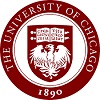Job Description
The Master of Theology (ThM) program affords an opportunity for students who have received the Master of Divinity (MDiv) degree or its equivalent (three years of graduate theological study) to pursue advanced theological studies for one year. The program is especially recommended for students who seek to gain additional competence for the ministry beyond that provided by the master of divinity degree. It is equally appropriate for those who, after some years in ministry, teaching, or another field, wish to return to a theological institution to clarify their thinking, to prepare themselves for new tasks, or to acquire further competence in a specific area of study.
This one-year program offers 18 areas of focus, and includes course work, a language requirement, and an oral examination requirement. It is strongly recommended that applicants to the ThM have prior knowledge of the language they plan to use to meet the language requirement.
Please note that loans are the only financial aid available for the ThM program.
African and African American Religious Studies
Courses in this area explore various dimensions of the religious experiences and expressions of the African and African American peoples, including the African diaspora. Focusing on interdisciplinary perspectives—historical, sociological, phenomenological, literary, and theological analysis—courses also examine the interplay of the lived religious traditions of black peoples in local and global contexts.
Buddhist Studies
Courses in this area foster the understanding of Buddhists and the life-worlds they have created, historically across Asia as well as in contemporary settings around the globe. This understanding is cultivated through self-reflective interpretations of Buddhist ideas, values, texts, languages, institutions, practices, and experiences, with the expectation that these interpretations will lead to both appreciation and critique of Buddhism, in all its diversity, as a human heritage.
Comparative Studies
Courses in this area include the comparative study of religion and anthropology, comparative theology, and comparative ethics. They involve the disciplined study of the complex relationships among themes and concepts, as well as the study of texts, practices, and images, in two or more religious traditions. Such studies by definition involve a self-reflexive, critical analysis of comparison itself. Some courses may be entirely methodological and/or theoretical in content, but the emphasis is normally on concrete comparative practice. Students are urged to cultivate knowledge of at least two traditions by the study of them throughout their program.
East Asian Religions
Courses in this area cover the diversity of East Asian Religions—primarily Buddhism, Confucianism, Daoism, Shintoism, and Christianity—from a variety of methodological perspectives—historical, philosophical, literary, and anthropological. While many courses focus on a particular religious community and/or tradition, others consider the richly complex interactions among various religious communities in China, Japan, and Korea. Students in this area are encouraged to explore the religious cultures of the region broadly, including relevant classical and/or modern languages, and to avail themselves of the wide range of courses offered through the Department of East Asian Languages and Civilizations in the Faculty of Arts and Sciences.
Hebrew Bible/Old Testament
Courses in this area introduce students to the writings that constitute the Hebrew Bible/Old Testament, with attention to their setting within the ancient Near East, to their literary characteristics, and to their significance for contemporary communities of faith and ethical commitment. The courses are designed to serve both students with no knowledge of biblical languages as well as those who have studied Hebrew, Greek, and/or other ancient languages relating to the Bible and who seek to continue building their linguistic foundation for further study.
Hindu Studies
Courses in this area foster the understanding of Hindu thought and practice both in India and throughout the global Hindu diaspora. Students in this area are encouraged to explore Hindu texts, ideas, values, and practices from a wide variety of disciplinary perspectives—history, theology, philosophy, literature, and anthropology. Students are also encouraged to undertake the study of Sanskrit and other relevant languages.
History of Christianity
Courses in this area study Christianity in its evolving institutional, theological, devotional, social, cultural, and intellectual expressions from the first century to the present. In addition, the area offers courses in historical method, historiography, and interpretive issues in secondary literature.
Islamic Studies
Courses in this area study different dimensions of the long and varied history and contemporary reality of the Islamic tradition. Islamic art, law, politics, and theology, Islamic mysticism, Islamic constructions of gender, pre-modern Islamic culture, and other topics are explored within the Arabic-, Persian-, and Turkish-speaking societies of the Muslim-majority world, South, Central, and Southeast Asia, Africa, and/or the modern Western world.
Jewish Studies
Courses in this area explore the Jewish tradition as it has developed over the millennia. In historical terms, it involves five broad periods—biblical, Second Temple, rabbinic, medieval, and modern. Methodologically, it makes use of a number of diverse but interrelated approaches: literary, historical, theological, philosophical, and sociological. The language most relevant to Jewish Studies is Hebrew, though for work in some areas, others, such as Aramaic or Yiddish, may also prove essential.
New Testament and Early Christianity
Courses in this area focus on the interdisciplinary study of Christian literature (canonical and extracanonical), history, exegesis, and theology in the context of the ancient Mediterranean world, with special emphasis on hermeneutics, feminist interpretation, and material culture.
Philosophy of Religion
Courses in this area engage in the philosophical interpretation and evaluation of religion, religious belief, and religious practice. Questions include the nature of religion, religious experience, and religious language; the status and justification of religious belief; the relationship between religion and ethics, and between religion and aesthetics; and theories of practice relative to the interplay of religious subjectivity and ritual. Work in this area can be pursued in relationship to European and American philosophy, the philosophical traditions of Asia, and/or comparative studies.
Religion and the Social Sciences
Courses in this area attempt to explicate and account for connections between religious phenomena and several aspects of society including the organization of cultural, political, economic, and reproductive life. This area approaches forms of religious faith, religious experience, and religious organization from post-enlightenment perspectives associated with the disciplines of anthropology, sociology, social psychology, political and economic science, and sociobiology.
Religion, Ethics, and Politics
Courses in this area focus on a range of normative issues that arise within political cultures. This area encourages students to understand the many social, cultural, and political contexts in which human agents are formed and take action. Special attention is given to the distinctive role that religious beliefs, practices, codes, and mores play in shaping ethical subjects or instructing their dispositions and choices. The area is intentionally interdisciplinary and exposes students to normative issues within a variety of the world’s religious traditions.
Religion, Literature, and Culture
Courses in this area provide students with the historical and critical methods necessary to analyze literary texts from a variety of genres (poetry, biography), religious traditions (Buddhism, Christianity), and cultural perspectives (Latin America, South Asia). Recognizing the intersectionality of religion, literature, and culture, this area combines literary and cultural criticism with theological and religious analysis. It also recognizes the aesthetic dimension of religion as a basis for understanding such themes as myth, ritual, and transcendence in much of world literature.
Religions of the Americas
Courses in this area explore the diverse religious traditions and expressions of the United States, Canada, the Caribbean, and Latin America. Historical, ethnographic, and comparative approaches are brought to bear on immigrant, indigenous, diasporic, and new religions. While some courses take broadly hemispheric and multireligious perspectives, others focus in depth on particular geographical areas, traditions, or themes.
South Asian Religious Traditions
Courses in this area cover the diversity of South Asian religious traditions—primarily Hinduism, Buddhism, Islam, and Christianity—from a variety of methodological perspectives, including: historical, philosophical, theological, literary, and anthropological. While many courses focus on a particular religious community and/or tradition, others consider the richly complex interactions among various religious groups in South Asia and the South Asian global diaspora. Students in this area are encouraged to explore the religious cultures of the region broadly, including relevant classical and/or modern languages.
Theology
Courses in this area focus on all modes of the Christian tradition’s self-understandings of its faith and practice in historical, contemporary, and comparative contexts. The study of theology involves the articulation of diverse understandings of central topics such as God, salvation, and the Church; analyses of the contexts of, constraints on, and methods of theological reflection and reasoning; the relation of Christianity to other religions; and the relation of theology to other pursuits of knowledge and practices of self-understanding.
Women, Gender, Sexuality, and Religion
Courses in this area use gender and/or sexuality as categories of analysis across the disciplines of religious and theological studies. The area engages feminist theory in relation to the experiences, thoughts, texts, and practices of both men and women as well as highlighting previously neglected areas of women’s religiosity.




